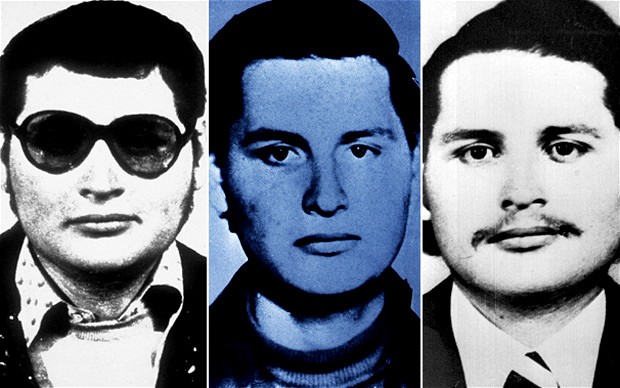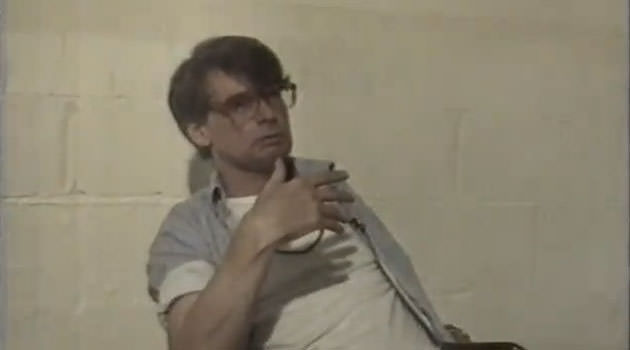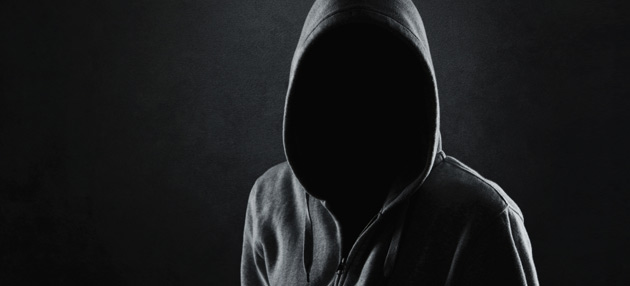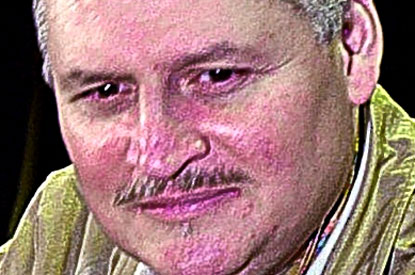Carlos took up arms against the Jordanian army and fought shoulder to shoulder with Abu-Sharif until 1970. A heartless, calculating human annihilator Carlos turned out to be. But that did not prevent King Hussein from defeating his enemy with the Palestinian casualties in the range of three thousand. In the wake of defeat most of the Popular Front members found refuge in Israel, but Carlos was not one of them. Once he was back from Jordon, he was first sent to another intensive training camp to come to grips with “finer points” of terrorism before being sent to London by George Habashas, the representative of Popular Front. His task in London was to embed himself in the British society and put together a list of “high profile” human targets who could either be terminated or kidnapped for some kind of exchange. In February 1972, Carlos travelled to London and was back with his family there. With his mother for support and his natural felicity with playboy lifestyle, it did not take long for him to become a regular at ‘high class’ parties hosted and attended by the rich and famous of London.
 To further consolidate his cover, he enrolled in the economics course at the University of London, and also took Russian language courses at Central London Polytechnic. In London his Popular Front contact was an Algerian Haddad loyalist, Mohamed Bouria. Newspaper came in handy for Carlos to learn about such prominent citizens who were either themselves Jewish or harboured a soft corner for Israel. Carlos studied each of the targets on the list painstakingly, and tried to know everything that could be known without arousing suspicion including telephone numbers, addresses of different homes, nick names and so on. Carlos had his list ready by December 1971 and from film personalities to business tycoons, it had all.
To further consolidate his cover, he enrolled in the economics course at the University of London, and also took Russian language courses at Central London Polytechnic. In London his Popular Front contact was an Algerian Haddad loyalist, Mohamed Bouria. Newspaper came in handy for Carlos to learn about such prominent citizens who were either themselves Jewish or harboured a soft corner for Israel. Carlos studied each of the targets on the list painstakingly, and tried to know everything that could be known without arousing suspicion including telephone numbers, addresses of different homes, nick names and so on. Carlos had his list ready by December 1971 and from film personalities to business tycoons, it had all.
Carlos’ house was once raided by the Special Branch of Scotland Yard because they suspected that Carlos was involved in illegal weapon’s trade in some way. Nothing incriminating was found, but the police did find a fake Italian passport with Carlos’ picture on it, which they apparently ignored as trivial. Carlos remained under surveillance for some time, after which the authorities left him alone.
Carlos came in touch with one Maria Nydia Romero de Tobon, a 37-year-old attractive Colombian divorcee, who had moved to London to resume her University studies after separating from her husband. What attracted her to Carlos were not his charms alone, but also his political inclinations and ideological passion. Nydia’s grandfather had been the founder of the Colombian Liberal Party, which made her a bit of a revolutionary by birth. Being with Carlos stoked the revolutionary fires in her and within months Carlos had a dependable ally in Nydia.
While Carlos was having a laidback time in London, Haddad’s men were carrying out his lethal agenda in different parts of the world. In February 1972, a Lufthansa airliner flying to Aden with 172 passengers, including Joseph Kennedy, son of the late Robert Kennedy, was hijacked, and after quick negotiations all the hostages were safely let off for a payment of $5,000,000 in ransom by the government of West Germany. In May, the same year, at Haddad’s behest, three Japanese Red Army members arrived at Tel Aviv’s Lod airport and started firing on the crowd indiscriminately leaving 23 dead and 27 wounded.
Carlos was also kept out of the Munich Olympic attack by a commando squad carved out from Yasser Arafat’s Fatah. The attackers called themselves “Black September” and launched a pre-dawn raid on the Israeli dormitory at the Munich Olympics and took Israeli athletes as hostages and demanded the release of 200 of their countrymen imprisoned in Israel. The West Germans agreed to their demands, but had planned mounting an attack to rescue the hostages and teaching the terrorists a lesson. The attempt backfired and all hostages ended up dead.
Popular Front’s lead man in Paris was Mohamed Boudia, who was an explosives expert and had a knack for seducing women and using them for his cause. After a few failed attempts, Boudia hit big with a massive explosion on oil refinery in Trieste, Italy. The explosion severely damaged the Trans-alpine pipeline resulting in a fire that continued for two days destroying 250,000 tons of crude oil and causing damage worth $2.5 billion dollars.
But June 28, 1973 was not Boudia’s day. After leaving the house of one of his mistresses, as he settled into the driver’s seat after looking under and around the car, a crude pressure-plate mine planted under the seat of his car exploded killing him instantly. He was one of the last targets of the group called ‘Wrath of God’ assembled to avenge the Munich Olympic massacre of the Israeli athletes in 1972.
Carlos wanted to be sent to Paris as a replacement for Boudia, but the high-ups at Popular Front found him deficient in experience, and appointed Michel Moukharbal as Boudia replacement to utter disappointment of Carlos, who did not find Moukharbal competent enough. Carlos was the second in command and despite his disappointment, he made all efforts to assist his immediate superior as best as he could. The decision to avenge the death of Boudia was taken, and the attempt at Joseph Sieff’s life in London was the beginning. And Carlos took responsibility for the attempt.
A month later, Carlos entered the Israeli Hapoalim Bank in London and hurled in an explosive device made out of a Russian hand grenade attached to 600 grams of plastic explosive. The bomb failed. All it did was produce a small crater, break a window, and injure one individual.
 Next, Carlos and Moukharbal targeted three supposedly pro-Israeli French newspapers, and cars stuffed with explosives were stationed outside the offices of L’Aurore, L’Arche , Minuteand Maison de la Radio . The bombs exploded, but did not cause any casualties but did damage the property of the two newspapers with Maison de la Radio suffering no damages on account of the failure of the bombs.
Next, Carlos and Moukharbal targeted three supposedly pro-Israeli French newspapers, and cars stuffed with explosives were stationed outside the offices of L’Aurore, L’Arche , Minuteand Maison de la Radio . The bombs exploded, but did not cause any casualties but did damage the property of the two newspapers with Maison de la Radio suffering no damages on account of the failure of the bombs.
However, Carlos was not part of the high profile terrorist operations until the terrorist operation in which the Japanese Red Army attacked the French Embassy in The Hague and managed to hold the ambassador, Jacques Senard, together with ten other people in Senard’s office itself. They wanted Furuya, an important member of the JRA, released.
While the negotiations were on, Carlos made an entry into the Deux-Magots café and hurled a fragmentation grenade down into the crowd from the first floor balcony killing two and injuring thirty-four. Two days later the French government let Furuya go and also arranged a jet for the terrorist as demanded and paid up $300,000 in ransom.
An impressed Haddad asked Carlos and Moukharbal to capture an El Al jet at Orly airport in December 1974, and this was to be Carlos’ first high profile operation, but on the day of the attack, unfortunately, El Al staff went on strike at the same time and the attack had to be postponed for another time.
Another assignment came in January 1975, when Carlos and Johannes Weinrich were sent to blow up an El Al flight with a Russian bazooka. Weinrich fired and missed twice.
Within two weeks they were back with another bazooka intending to blow up an El Al jumbo jet, but before they could get into position, a security officer spotted them and started firing with his sub-machine gun. They hurriedly shot at the jet, but it was too far for an accurate shot. The attack had failed.
After the failed attack, Carlos and Moukharbal went into hiding in Paris, where Carlos kept hiding his weapons whereas Moukharbal kept making trips to Popular Front headquarters in Beirut, and was arrested by the Lebanese police on June 7, 1975. And eventually broke down under pressure.
The Lebanese police tried arresting Carlos after Moukharbal entered the room Carlos was in and pointed at him. Carlos proved too quick and very precise with his automatic pistol. He shot Moukharbal in the neck and also shot a senior police officer and two detectives with remarkable accuracy and escaped.
On his return to Beirut, Carlos was hailed as a star for his achievements in Paris with Moukharbal turning into a villain towards the end. Carlos had proved himself and was now allowed to choose his team for the next mission, which was as dangerous as it was ambitious – an attack on the headquarters of the Organisation of Petroleum-Exporting Countries (OPEC) in Vienna aiming at abducting all the government ministers attending the conference to be held in December 1975. The ministers were to be released on payment of a ransom except Arabia’s Sheik Yamani and Iran’s Jamshid Amouzegar, who were to be slain during the operation.
The OPEC attack was a major operation and could not have concluded smoothly. And Carlos could not have been oblivious to the realities. However, it turned out to be more eventful than Carlos had imagined. A number of things did not go as planned and Carlos had to keep modifying the plan in face of the eventualities. But in a sense the OPEC attack was quite certainly Carlos’ defining moment.
Originally published as part of a three-part ‘Crime File’ in LAWYERS UPDATE in November 2011.






